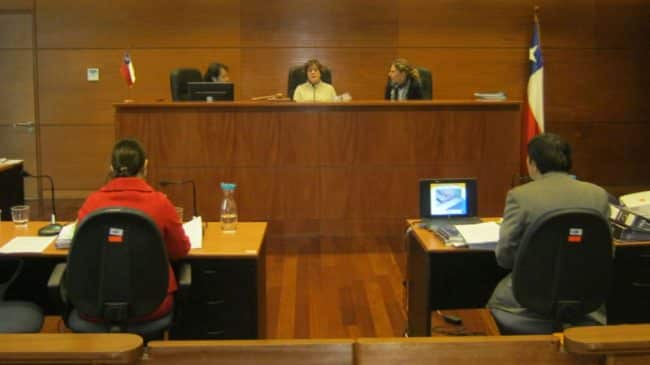My recent Reason Foundation policy study, Smart on Sentencing, Smart on Crime: Reforming Louisiana’s Determinate Sentencing Laws (co-authored by Julian Morris), made a series of policy recommendations, which—if enacted—would help to significantly reduce Louisiana’s prison population and corrections expenditures, without compromising public safety. The reforms proposed in the study have been enacted in other states with great success, and are overwhelmingly popular with the public. Several examples are outlined below.
First, however, a brief overview of some of the problems with Louisiana’s sentencing laws, and the unintended consequences they’ve had. Currently, Louisiana has the highest incarceration rate in the nation, with 868 out of every 100,000 of its citizens in prison. Its prison population has nearly doubled over the past 20 years alone, from roughly 21,000 in 1992 to 40,170 at the end of 2012. The state has also seen its corrections expenditures increase by 315 million dollars (a figure that has been adjusted for inflation) over the same time period, from $442.3 million (in 2011 dollars) in 1992 to $757.4 million in 2011.
The state also has one of the highest violent crime rates in the country, and it has consistently ranked higher than all of its neighboring states, as well as the national average. Finally, recidivism rates are high in Louisiana, and nearly half of all inmates are returned to prison within five years of release.
How has Louisiana gotten to this point? Well, the major driver has been the state’s determinate sentencing laws.
Over the past several decades, Louisiana legislators have passed a number of determinate sentencing laws aimed at reducing crime and incapacitating certain types of offenders. However, the majority of these laws have been applied to nonviolent crimes, and because of this, nonviolent offenders now account for the majority of inmates and admissions to prisons in the state. The most recent data shows that 44.3 percent of inmates are serving sentences for nonviolent drug and property crimes, while only 41.5 percent of inmates are serving sentences for a violent crime.
Since the early 1970s, Louisiana has had some of the harshest mandatory minimum sentences for nonviolent offenses in the nation. For example, offenders convicted of possessing a small amount of any Schedule I narcotic are subject to a mandatory minimum sentence of four years of hard labor in prison. Likewise, while a number of states have begun to scale back penalties for marijuana offenses or even outright legalize it, offenders convicted of growing or selling any amount of marijuana in Louisiana—so, as little as one pot plant—are subject to serve a mandatory minimum of five years of hard labor in prison, as well as pay a fine of up to $50,000.
Louisiana’s mandatory minimum sentencing laws are not only harsh, but often disproportionate as well. A large number of crimes that carry mandatory minimum prison sentences are nonviolent in nature, and numerous violent crimes do not carry mandatory minimum sentences at all. Meanwhile, of the violent crimes that do carry mandatory minimum sentences, several of these sentences are equal to or much less severe than the majority of mandatory minimum sentences for nonviolent drug offenses.
For example, if a defendant is convicted of illegally possessing as little as one gram—less than the weight of a sugar packet—of a Schedule I narcotic, such as morphine or codeine, the defendant will be subject to serve a mandatory minimum sentence of four years of hard labor in prison. Contrast this with a conviction for a violent crime such as negligent homicide, manslaughter, aggravated assault with a firearm, aggravated battery, second degree battery, simple rape, female genital mutilation, intentional exposure to AIDS, or simple kidnapping. All of these violent crimes carry no mandatory minimum sentences at all. Such disparities show that nonviolent drug offenders are often subject to equal or harsher punishment than those who have committed much more harmful offenses, which is problematic in and of itself.
It’s not just mandatory minimums that are problematic. The state’s habitual offender law has also contributed to Louisiana’s increased prison population and correctional expenditures, without improving public safety.
While the habitual offender law was designed to counter violent criminal recidivism, the law hasn’t worked as it was intended. Instead, a number of nonviolent offenders have been sentenced to extremely long sentences as habitual offenders. For example, under the law, life without parole is mandatory for a third drug offense conviction if the third and prior offenses carry a sentence of 10 years or more. Third-time possession of marijuana, even of a single joint, carries up to a 20-year sentence. Growing a single marijuana plant carries a sentence of up to 30 years.
Life without parole is a sentence usually reserved for the most violent of criminals—it’s essentially a death sentence without the execution. However, because of the habitual offender law, there are currently 175 inmates serving life without parole for nonviolent crimes in Louisiana. These offenders include Vincent Cushinello, who is serving LWOP for slashing tires in 2001; Anthony Kelly, sentenced to LWOP for possession of 32 grams of marijuana with intent to distribute in 1999, at age 25; and Fate Vincent Winslow, sentenced to LWOP for acting as a go-between in the sale of two small bags of marijuana, worth $10 in total, to an undercover police officer when he was homeless. According to a recent ACLU report, these 175 inmates alone will cost Louisiana taxpayers approximately $87.5 million over the duration of their incarceration.
Policy Recommendation #1
First, if possible, Louisiana should eliminate mandatory minimum sentences for low-level, nonviolent offenses, or—failing that—increase the threshold amount of drugs required to trigger their use.
The elimination of mandatory minimums would not make nonviolent crimes legal—instead, it would return discretion to judges, who would be able to craft an appropriate sentence based upon a defendant’s role in the crime as well as other relevant factors, thereby allowing for more proportional sentencing and reduced corrections expenditures.
Several states as well as the federal government have scaled back mandatory minimums in recent years and have had great success. Rhode Island, a state cited in the study, repealed mandatory minimum sentences for nonviolent drug offenses in 2009. Because of this, they were able to reduce their prison population by over 9 percent in the first year alone. Moreover, the state’s violent crime rate declined following the repeal.
South Carolina is another example. In 2010, that state passed a law that offered alternative sentences for nonviolent offenses instead of mandatory minimums. Recently, South Carolina’s Sentencing Reform Oversight Committee found that the state’s prison population fell 2.8 percent in 2013 from the previous year, saving taxpayers $5.2 million dollars. Moreover, nonviolent inmates—who made up more than half of all SC prison inmates in 2002—now account for 34 percent of the state’s prison population.
Texas also scaled back its harsh sentencing laws for drug offenders in 2003, and has continued to strengthen alternatives to incarceration for adults and juveniles. Since then, the state has seen significant reductions in crime and avoided more than $2 billion in taxpayer costs for prisons that are no longer needed.
Popular support is behind this reform as well. The most recent Reason-Rupe poll finds that 71 percent of Americans favor eliminating mandatory minimum sentences for non-violent offenders so that judges can regain the ability to make sentencing decisions on a case-by-case basis, with solid majorities among Republicans, Democrats, and independents. Less than a quarter of Americans, 24 percent, oppose the idea.
It’s also important to keep in mind that most Americans are not fully aware of the arguments for and against mandatory minimums. Nevertheless, because Americans’ initial reaction is to oppose mandatory minimums, the burden of proof lies with those who favor the status quo.
Policy Recommendation #2
While repealing mandatory minimum sentences is the best option for Louisiana, enacting a safety valve provision that allows judges to bypass mandatory minimum sentences when appropriate is an alternate approach Louisiana legislators could take in order to reduce the state’s prison population and save taxpayers a substantial amount of money, without compromising public safety.
Such sentencing safety valves have many benefits. They allow courts to depart below a mandatory minimum sentence only when doing so would fulfill the goals of punishment without adversely affecting public safety.
A safety valve provision would not eliminate mandatory minimum sentences, nor require judges to abandon imposing them. Instead, safety valves merely allow judges to decide if departing below the mandatory minimum sentence would be in the best interest of justice.
Maine instituted a safety valve in 2003, for example, and they have consistently held the lowest violent crime rate in the country each year since then.
Policy Recommendation #3
The habitual offender law should be revised to only apply to offenders who have committed one or more serious or violent crimes.
Instead of allowing the habitual offender law to apply to those convicted of two or more nonviolent felony offenses, legislators might consider passing legislation that would allow for the law to be applied only to those who pose a larger threat to public safety, such as those convicted of two or more violent crimes. That way, there would be no chance that nonviolent offenders would be sentenced to serve disproportionately longer sentences for crimes that have little to no effect on public safety, and prison space would be saved for offenders who threaten society the most. Such changes to the law should be made retroactive, as well. By limiting habitual offender sentences to criminals who have committed violent or serious felonies, and allowing such changes to be retroactive, Louisiana’s habitual offender law would be more proportionate and operate as intended: to keep violent career criminals behind bars.
If Louisiana were to revise its sentencing statutes to eliminate life without parole for nonviolent offenses, the ACLU has estimated that the state would save approximately $180 million dollars. If the state were to revise the habitual offender law to only apply to violent offenders, it would save much more.
This article is based on a presentation by the author to the Louisiana Sentencing Commission on December 19, 2013.

